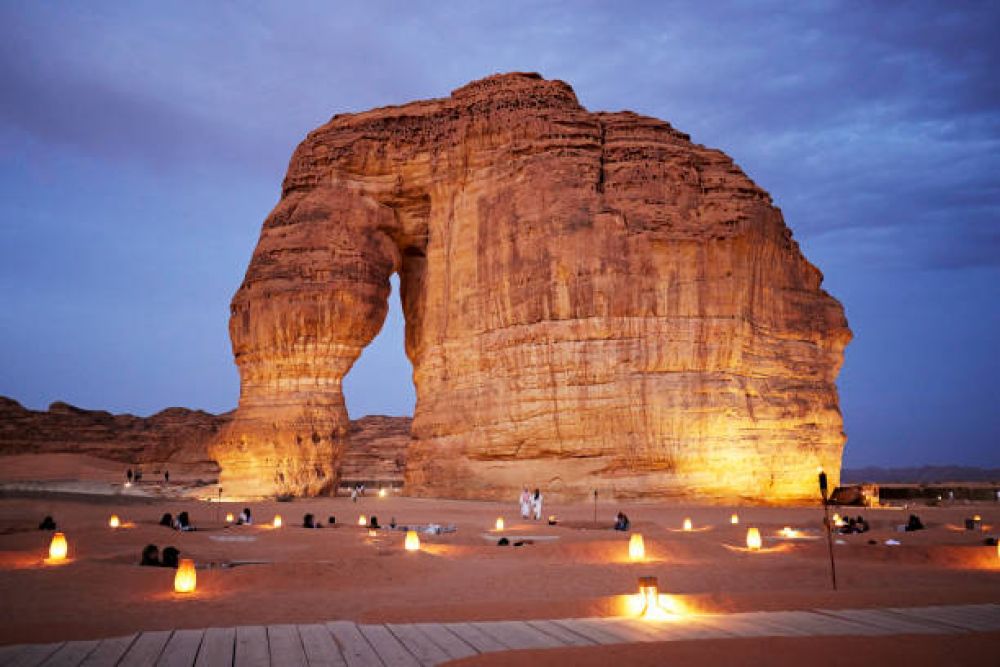

Elephant Rock, also known as Jabal Alfil, is one of the most iconic natural rock formations in the Al Ula region of Saudi Arabia. Named for its resemblance to an elephant with a trunk extending to the ground, this majestic sandstone rock structure has become a focal point for tourists visiting the area.
The history of tourism in Al Ula dates back to ancient times when it served as a crossroad for trade routes. The city is also home to the UNESCO World Heritage Site, Madain Saleh, which has attracted historians, archaeologists, and travelers for many years.
In recent years and particularly with the launch of the Saudi Vision 2030 program, Saudi Arabia has been opening up to international tourism, highlighting Al Ula and its natural and cultural heritage as key attractions. Initiatives led by the Royal Commission for Al Ula (RCU) aim to develop the region sustainably and responsibly while preserving its natural treasures.
Elephant Rock has served as a significant tourist attraction in the Al Ula region. Visitors come from all over the world to witness the spectacular sight that nature has carved out over millennia. The site has facilities for visitors including a parking lot, walking paths, and sitting areas to encourage tourism while ensuring safety and conservation of the natural environment.
To boost tourism, the Saudi government has been enhancing the infrastructure surrounding Elephant Rock. The improvements include better roads, increased accommodation options, and the development of visitor centers which offer insight into the region's history and the significance of its geological formations.
The latest trends in tourism in Al Ula focus on eco-tourism and cultural experiences. Tourists are looking for immersive experiences that connect them with the history and natural beauty of the area. Activities such as rock climbing, hiking the trails around Elephant Rock, and night-time light shows that bring to life the region's heritage are increasingly popular.
The "Winter at Tantora" festival has also emerged as a significant drawcard for Al Ula, with Elephant Rock featuring prominently in promotional materials. The festival showcases local culture, art, and music against the stunning backdrop of Al Ula's ancient landscapes.
The future of tourism in Al Ula, and by extension Elephant Rock, appears to be oriented towards sustainable practices. As part of this, there is a significant emphasis on limiting visitor numbers to prevent overcrowding and the overuse of natural sites. Advanced booking systems and guided tour options are used to control the flow of visitors and provide educational insights into the area's geological and historical significance.
Moreover, the Saudi government is investing in human capital, by training local communities to be an active part of the tourism industry which aims to ensure that visitors receive authentic experiences while providing economic benefits to local residents.
In conclusion, Elephant Rock stands as a testament to Al Ula's rich heritage and burgeoning tourism sector. With responsible and sustainable tourism practices in place, it is poised to remain an integral part of Saudi Arabia's cultural and natural attraction portfolio for many years to come.